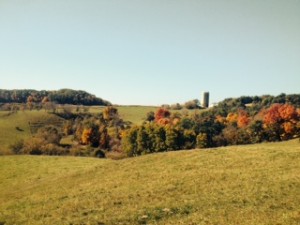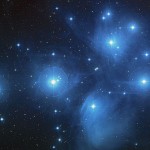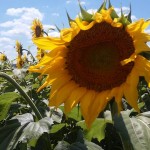Patheos Pagan is hosting a conversation about honoring the ancestors this month. I didn’t write anything for it, having no established practice to speak of. More truthfully, the whole concept challenges me.
The relatives I’ve lost (thankfully few) weren’t a very spiritual bunch. They lived deeply in this world. I honor them best by enjoying good food, good friends, and remembering to appreciate the small beauties of each passing day.
As for ancestors of the land, having just passed “Indigenous People’s Day” (which is still known as Columbus Day in much of the nation), I have at best uneasy relationship with this idea. Who am I to assume that the ancestors of this place called Wisconsin, called the USA, welcome my attempts to reconcile with them? They might well be furious—at the genocide and displacements of their people, at the ignorance with which we carved up and plowed into the land, at the disrespect we show to their descendants, even now, in how we treat both the peoples and the land. I would like to believe some sort of connection is possible, but I don’t think I’ve yet put in the work and time that would make this an honest effort. At best, I can bow my head, and promise to try to listen, to teach my children how to listen.
But there is a ritual pilgrimage my family makes in October each year.

Traveling about an hour up the road, the town of Reedsburg, Wisconsin serves as host to a ten-day Fermentation Festival, celebrating all things fermented, from compost to chocolate to kimchi to beer. And as part of this celebration, each year arising out of the farm fields in a 50-mile loop, the Farm Art DTour.
People come from as far away as the Twin Cities and Chicago to drive the loop, stopping at the installations—some of them by professional artists, others by the farm families that own the land, local 4H groups, and some pop ups from local artisans and neighbors. We move as pilgrims through the rural landscape, stopping at each station to read, consider, pause, interact, take pictures, try the food.
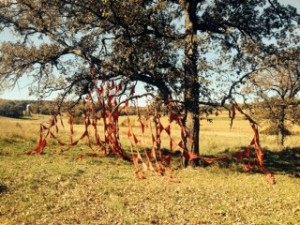
It’s always a profound experience for me to see so many people spend a day visiting art of all kinds, driving through the autumn fields. The DTour ties together agriculture, culture, art, food, history and land. This year, the very first stop was a new sign with this text:
Wanąğomįk cinąk
The native inhabitants of this area were called Winnebago by the neighboring Sauk and Fox tribes. In 1993 the tribe reclaimed their original name of Ho-chunk, or “People of the Sacred Language.” Reedsburg has long held a respected place in the history of the Ho-chunk. In the winter of 1893 the citizens of Reedsburg stood up to the US Government military in order to protect the Ho-chunk from the decimation of the forced removal from their homelands. Due to the large number of church-sponsored cemeteries or final resting places located in Reedsburg, the Ho-chunk refer to the city as Wanagomjk cinak, or land of cemeteries.
The words washed over me like cool water, reminding me that history is always more complex than the stories we learn (no matter which stories we learn). That in every generation, peoples can work together in spite—or even because of—their differences. That respect and appreciation can grow anywhere. Maybe, just maybe, keeping in mind this piece of local history, I can begin to find my way to connecting with the ancestors of this place in a way that is respectful to them and honest to myself.
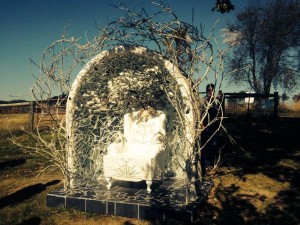
We drove on. Soon we came to a spiral labyrinth mowed into the corn, with signs along the way reminding us to “still your lips” “open your ears” “quiet your mind” “listen to the land…”
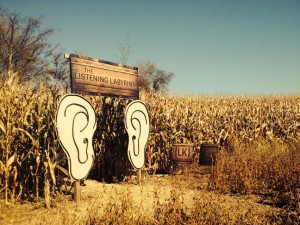
when we reached the center of this contemplative journey, there were stairs leading up to a platform that allowed us to see over the cornstalks, the view expanded in front of us to embrace the landscape. The metaphor was unmistakable.
One of my favorite aspects of the DTour is that it forces one to see the land, agriculture, and culture, anew. If this is art:
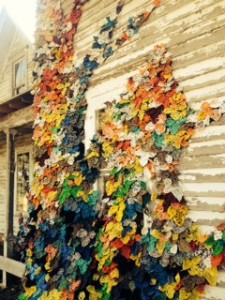

What about this?
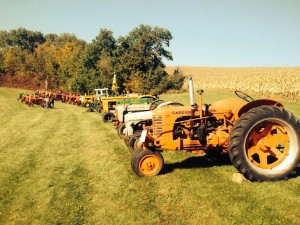
And what about this?
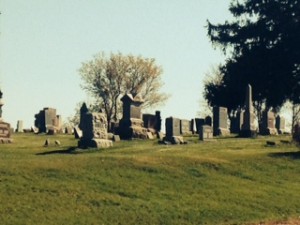
How we find food, prepare it, share it, and how we honor our dead…these things may vary from generation to generation, from one culture to another, one region to another, but… we all do procure and share food together, and we all do honor our dead.
By the time we finished the loop and headed for home, we had enjoyed pork and sauerkraut sandwiches, Asian-inspired potstickers (including a macaroni-and-cheese version–this is Wisconsin, after all), fermented salsa, local chocolates. I felt my connection to this place reaffirmed and reframed—by returning to the land with a reverential attitude, I already begin to connect to the ancestors of this place, and in doing so, I reconnect more deeply to my own humanity.
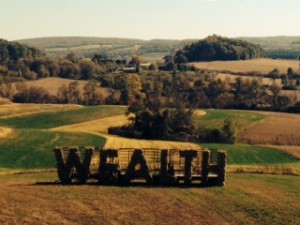
With thanks to my husband, Reed Busse, for the photographs. My daughter insists that I use some of hers as well. Alas, she missed my deadline…so expect to see more DTour shots in upcoming essays.

